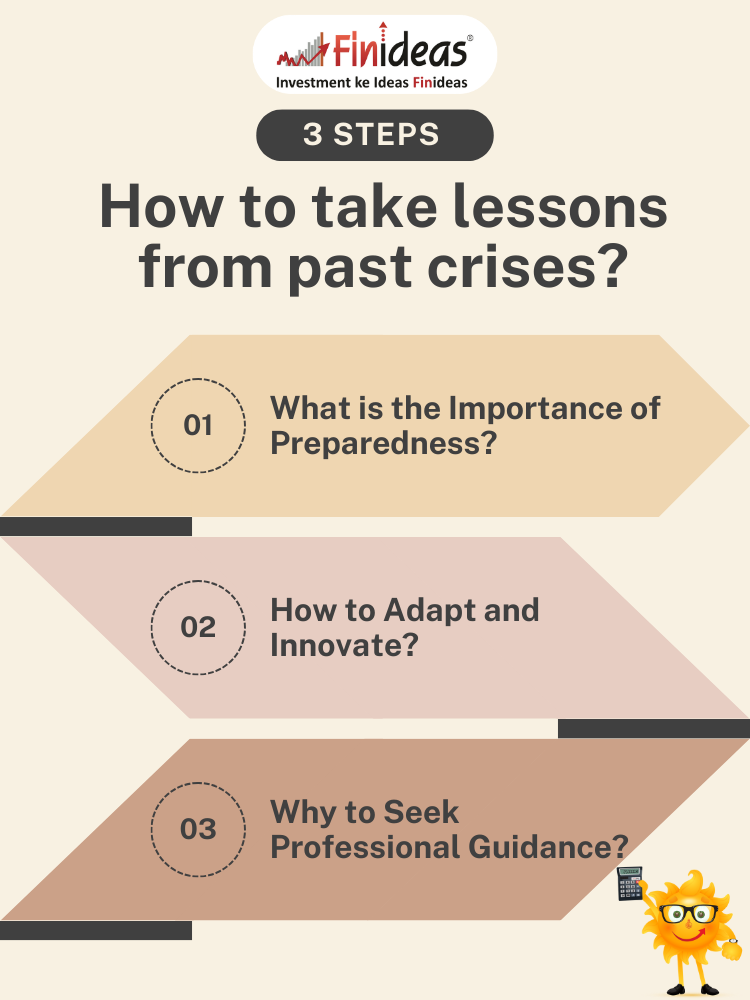Surviving a Financial Crisis: Lessons Learned and Strategies for Recovery
In the wake of a financial crisis, whether on a global scale or within the confines of our personal finances, it’s natural to feel overwhelmed and uncertain about the future. Yet, history has shown us time and again that resilience and strategic planning can lead to not only surviving but thriving in the aftermath. In this blog post, we’ll delve into valuable lessons learned from past financial crises and explore actionable strategies for navigating and recovering from such challenging times.
What is the Nature of Financial Crises?
Financial crises can manifest in various forms, from stock market crashes and economic recessions to personal debt crises and job losses. While each crisis may have its unique triggers and consequences, there are common threads that run through them all. Understanding these can provide valuable insights into how to respond effectively:
What is Identifying Warning Signs?
Financial crises often don’t happen overnight. They brew slowly, with warning signs such as excessive borrowing, speculative bubbles, or unsustainable economic policies. Recognizing these signs early on can empower individuals to take proactive measures.
How to Build Resilience?
Just as diversification is key to a robust investment portfolio, diversifying income sources and financial assets can help individuals withstand economic downturns. Having multiple streams of income or emergency savings can buffer against sudden financial shocks.
How to Manage Debt Wisely?
Debt can be a double-edged sword, providing leverage for growth but also exposing individuals to financial risk. Prioritizing debt repayment and avoiding high-interest loans can reduce vulnerability during turbulent times.
So beforehand start planning for finances , if you are interested in financial freedom then you must know about Index Long Term Strategy.
How to take lessons from past crises?
History serves as a rich source of wisdom, offering valuable lessons from past financial crises. Let’s examine some key takeaways:
What is the Importance of Preparedness?
Those who weathered past crises most successfully were often those who had prepared in advance. Whether through prudent financial planning, investing in education and skill development, or building strong networks, preparation can mitigate the impact of unexpected challenges.
How to Adapt and Innovate?
Crises often force individuals and businesses to adapt to new realities. Embracing innovation, whether in terms of business models, technology adoption, or career pivots, can open up new opportunities for growth and resilience.
Why to Seek Professional Guidance?
During times of uncertainty, seeking advice from financial experts, counselors, or mentors can provide valuable perspective and guidance. Professional support can help individuals navigate complex financial decisions and avoid common pitfalls.
Strategies for Recovery
Recovering from a financial crisis requires a combination of resilience, resourcefulness, and strategic planning. Here are some actionable strategies to facilitate the recovery process:
Assessing the Situation:
Start by taking stock of your current financial situation. Identify areas of vulnerability, such as high levels of debt, depleted savings, or loss of income.
Creating a Budget:
Establish a realistic budget that prioritizes essential expenses while cutting back on non-essential spending. Look for opportunities to reduce costs and increase savings wherever possible.
Exploring Income Opportunities:
In times of crisis, traditional employment opportunities may be limited. Consider alternative sources of income, such as freelancing, consulting, or starting a side business.
Seeking Support Networks:
Don’t hesitate to reach out to friends, family, or community organizations for support. Sharing resources and information can lighten the burden and provide emotional reassurance during challenging times.
Investing in Skills Development:
Use this period as an opportunity to invest in acquiring new skills or upgrading existing ones. Lifelong learning can enhance employability and open up new career avenues.
Conclusion
While financial crises can be daunting, they also present opportunities for growth, innovation, and personal development. By learning from past experiences, adopting a proactive mindset, and implementing sound financial strategies, individuals can not only survive but emerge stronger from adversity.
What strategies have you found most effective in navigating financial crises, whether on a personal or professional level? Share your insights and experiences in the comments below!
Remember, your comments and experiences can provide valuable support and inspiration to others facing similar challenges. Let’s come together as a community to empower each other on the journey to financial resilience and recovery.
Happy Investing!
This article is for education purpose only. Kindly consult with your financial advisor before doing any kind of investment.


